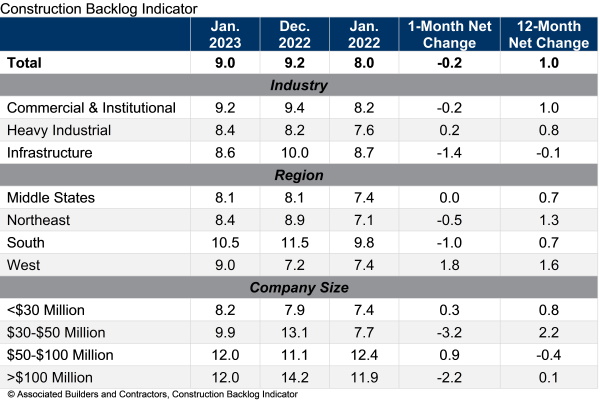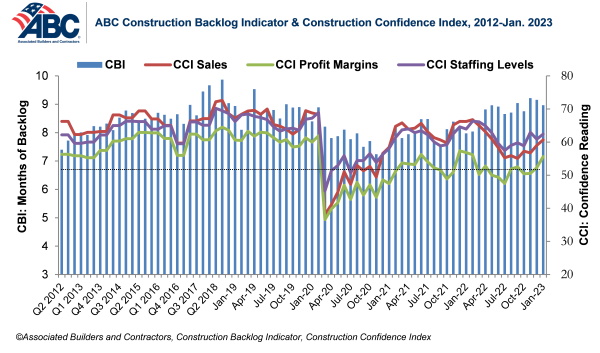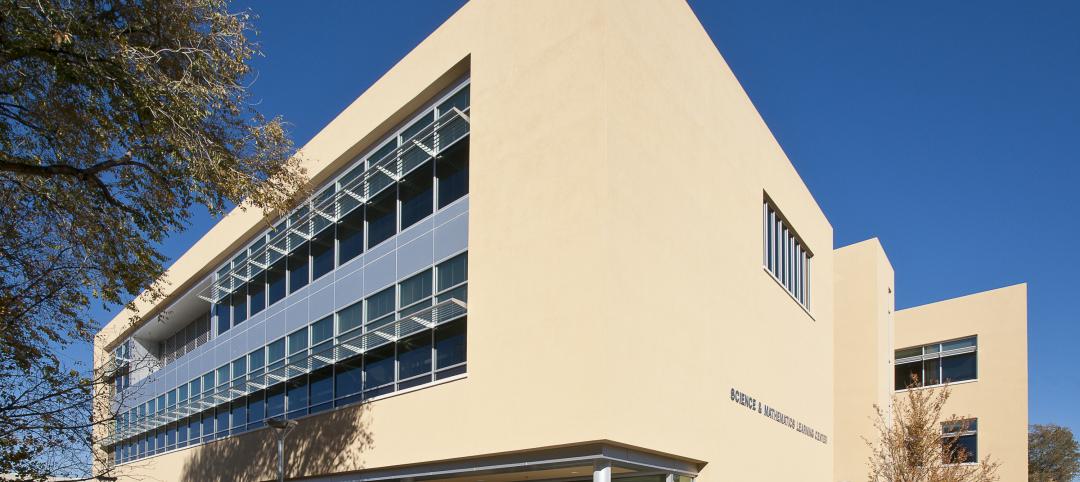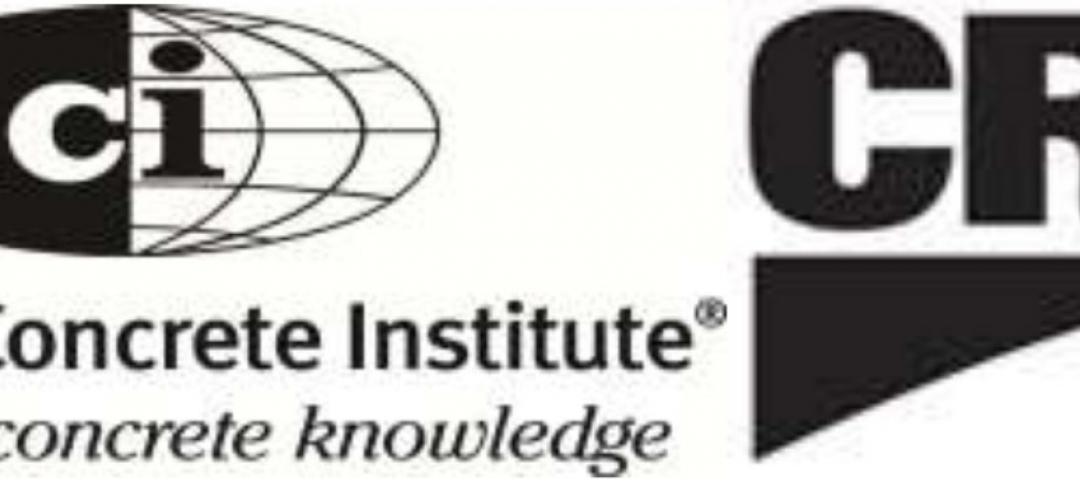Associated Builders and Contractors reports today that its Construction Backlog Indicator declined 0.2 months to 9.0 in January, according to an ABC member survey conducted Jan. 20 to Feb. 3. The reading is 1.0 month higher than in January 2022.
View ABC’s Construction Backlog Indicator and Construction Confidence Index tables for January. View the historical Construction Backlog Indicator and Construction Confidence Index data series.
Despite the decline in January, backlog remains elevated by historical standards and is 0.1 months higher than in February 2020, the month before the COVID-19 pandemic began to impact the economy.
ABC’s Construction Confidence Index reading for sales, profit margins and staffing levels increased in January. All three readings remain above the threshold of 50, indicating expectations of growth over the next six months.


“Despite extremely elevated borrowing costs, worker shortages and a generally downcast economic outlook, contractor confidence rebounded in January to a level not seen since the first half of 2022,” said ABC Chief Economist Anirban Basu. “Given the recent employment report, the U.S. economy continues to fend off recession. Some economists have concluded that rather than a hard or soft landing, the U.S. economy is headed for ‘no landing,’ meaning that economic growth will continue despite rising interest rates.
“However, the incredibly strong January jobs report makes it more likely that the Federal Reserve will maintain higher borrowing costs for a longer period,” said Basu. “Eventually, that could cause the economic expansion to unravel, perhaps later this year. That could set the stage for diminished backlog and less confidence for contractors that specialize in privately financed projects as 2024 approaches.”
Related Stories
| Oct 17, 2011
USGBC L.A. Chapter's Green Gala to feature Jason McLennan as keynote speaker
Chapter to presents inaugural Sustainable Innovation Awards,
| Oct 17, 2011
Schneider Electric introduces UL924 emergency lighting control devices
The emergency lighting control devices require fewer maintenance costs and testing requirements than backup batteries because they comply with the UL924 standard, reducing installation time.
| Oct 14, 2011
AISC develops new interoperability strategy to move construction industry forward
AISC is working to bring that vision to reality by developing a three-step interoperability strategy to evaluate data exchanges and integrate structural steel information into buildingSMART's Industry Foundation Classes.
| Oct 14, 2011
University of New Mexico Science & Math Learning Center attains LEED for Schools Gold
Van H. Gilbert architects enhances sustainability credentials.
| Oct 14, 2011
BD+C Survey on Building Information Modeling: The Good, the Bad, and the Solutions
In a recent survey conducted by Building Design+Construction, more than 75% of respondents indicated they currently use BIM or plan to use it. Respondents were also asked to comment on their experiences with BIM, what they liked and disliked about BIM, and what BIM-related advice they would give to their peers.
| Oct 14, 2011
ACI partners with CRSI to launch new adhesive anchor certification program
Adhesive anchor installer certification required in new ACI 318-11.
| Oct 14, 2011
Midwest construction firms merge as Black and Dew
Merger is aimed at increasing market sector capabilities and building on communication and core contracting competencies.
| Oct 14, 2011
AIA Continuing Education: optimizing moisture protection and air barrier systems
Earn 1.0 AIA/CES learning units by studying this article and passing the online exam.
| Oct 14, 2011
MaxLite receives 2011 Lighting for Tomorrow honorable mention
The judging panel was particularly impressed with the performance of this fixture.
| Oct 12, 2011
Vertical Transportation Systems Reach New Heights
Elevators and escalators have been re-engineered to help building owners reduce energy consumption and move people more efficiently.
















